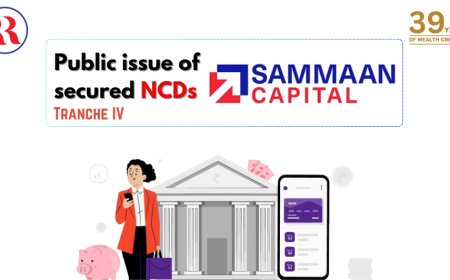Unlocking Collective Genius The Power of Strategic Planning Facilitation
I could use this space to tell you about my being a proven executive, business owner, CEO and all that other blah, blah, blah but what I really want to tell you is how much I love coaching.

In today's rapidly evolving landscape, organizations are constantly navigating a sea of challenges and opportunities. From technological disruptions to shifts in market dynamics, the need for clear direction and adaptive strategies has never been more critical. This is where strategic planning comes into play a deliberate and systematic process for envisioning a desired future and charting a course to get there. However, simply having a plan isn't enough; the true power lies in its development and the collective ownership it inspires. This is precisely where the art and science of strategic planning facilitation shine.
Far more than just moderating a meeting, strategic planning facilitation is the dynamic process of guiding a diverse group of stakeholders through the complex journey of defining an organization's vision, mission, values, goals, and action plans. Its about creating an environment where every voice is heard, ideas flow freely, and consensus emerges from a rich tapestry of perspectives. A skilled facilitator acts as a neutral third party, ensuring the process remains on track, productive, and ultimately, successful.
Why is Facilitation Indispensable for Strategic Planning?
Imagine a strategic planning session without a facilitator: disparate agendas, dominant personalities, unproductive tangents, and a distinct lack of actionable outcomes. This is a common pitfall that competent facilitation skillfully avoids. Heres why it's not just beneficial, but often indispensable:
-
Ensuring Objectivity and Neutrality: A facilitator has no vested interest in specific outcomes or pre-determined solutions. Their sole focus is on the process itself, ensuring fairness, impartiality, and an unbiased exploration of all possibilities. This neutrality builds trust among participants and encourages open dialogue.
-
Maximizing Participation and Engagement: In any group setting, some voices naturally dominate while others recede. A skilled facilitator actively employs techniques to draw out contributions from every participant, ensuring that diverse perspectives are not only heard but also genuinely considered. This fosters a sense of inclusivity and shared ownership.
-
Managing Group Dynamics and Conflict: Strategic planning often involves robust discussions, differing opinions, and even potential conflicts. Facilitators are adept at managing these dynamics constructively, transforming disagreements into opportunities for deeper understanding and innovative solutions. They can defuse tension, reframe arguments, and guide the group towards common ground.
-
Maintaining Focus and Progress: Without a structured approach, strategic planning sessions can easily devolve into unproductive rambling. A facilitator keeps the group on track, adhering to the agenda, managing time effectively, and ensuring that discussions lead to tangible progress and decisions. They act as the guardian of the process, ensuring momentum is maintained.
-
Synthesizing Information and Driving Consensus: Strategic planning generates a vast amount of information, ideas, and potential directions. A facilitator is crucial in helping the group synthesize this complex data, identify key themes, and ultimately guide them towards a shared understanding and consensus on critical decisions. This often involves skillful questioning, active listening, and summarizing.
-
Building Cohesion and Shared Ownership: When participants feel truly heard and their contributions valued, they are far more likely to buy into the resulting strategic plan. Facilitation fosters this sense of collective ownership, transforming a document into a living commitment. This shared understanding and commitment are vital for successful implementation.
-
Introducing Proven Methodologies and Tools: Experienced facilitators bring a wealth of knowledge regarding various strategic planning frameworks, tools, and techniques. Whether it's SWOT analysis, scenario planning, or force field analysis, they can introduce and guide the group through the most appropriate methodologies to achieve their objectives, enhancing the rigor and effectiveness of the process.
The Facilitator's Toolkit: More Than Just Talking
Effective facilitation isnt about leading from the front; its about enabling the group to lead themselves. This requires a diverse toolkit of skills and techniques:
-
Exceptional Listening Skills: Active and empathetic listening is paramount to understanding the nuances of group dynamics and individual contributions.
-
Powerful Questioning: Open-ended, probing questions can stimulate critical thinking, uncover assumptions, and deepen discussions.
-
Summarization and Reframing: The ability to concisely summarize complex discussions and reframe viewpoints helps to clarify understanding and bridge divides.
-
Time Management and Pacing: Keeping the process moving efficiently without rushing crucial discussions is a delicate balance.
-
Conflict Resolution: Techniques for mediating disagreements and fostering constructive dialogue are essential.
-
Process Design: The ability to design and adapt the strategic planning process to the specific needs and context of the organization.
-
Energy Management: Keeping the group engaged and energized throughout what can be a demanding process.
Beyond the Planning Session: Sustaining the Momentum
The role of a strategic planning facilitator doesn't necessarily end when the planning sessions conclude. A good facilitator can also assist in:
-
Documenting the Plan: Ensuring the outcomes are clearly articulated and captured in a comprehensive strategic document.
-
Developing Implementation Plans: Guiding the group in translating strategic goals into actionable steps and assigning responsibilities.
-
Establishing Accountability Mechanisms: Helping to define how progress will be monitored and evaluated.
-
Post-Planning Follow-up (Optional): In some cases, a facilitator might be engaged to support initial implementation phases or review progress.
In conclusion, strategic planning is an investment in an organization's future, and the facilitation of this process is an investment in its success. By creating an inclusive, productive, and focused environment, a skilled strategic planning facilitator unlocks the collective genius within an organization, transforming aspirations into actionable strategies and building the foundation for sustained growth and resilience. In a world of constant change, the ability to effectively plan and adapt is paramount, and strategic planning facilitation is the key to unlocking that crucial capability.































